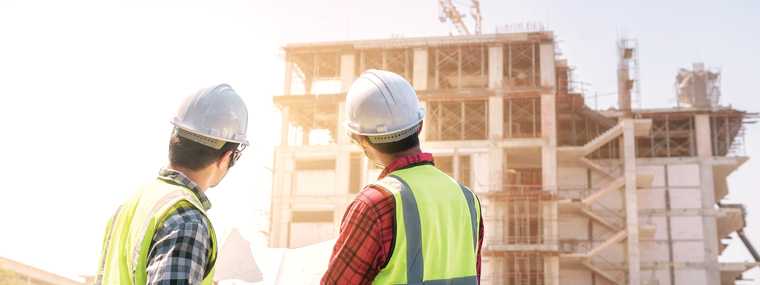
High-Rise Condominium Safety Reform Recommendations Appear, but Most Florida Municipalities Awaiting Statewide Changes
By Laura Manning-Hudson / Published March 2022

As of the start of 2022, more than six months after the tragic collapse of the Champlain Towers South condominium in Surfside, FL, several major organizations have developed a number of high-rise condominium safety reforms and recommendations. However, most Florida counties and municipalities appear to be holding off in expectation of statewide changes to legislation during the next legislative session that started in January.
The Community Associations Institute (CAI), which is the largest organization representing the interests of associations in the world, has issued a report with a number of public policy recommendations aimed at providing solutions for legislators addressing high-rise building safety. In addition, seven of Florida’s top architecture and engineering trade groups created a task force that has recommended re-inspections after 30 years with follow-ups every 10 years, and the Florida Bar has also completed the report and recommendations from its condominium life safety task force.
CAI’s public policy recommendations cover the areas of reserve studies and funding, building maintenance, and structural integrity. The organization believes its recommendations should be considered for adoption into state law to support the existing statutory framework for the development, governance, and management of community associations. It is planning to release model statutory language in support of its policy recommendations.
In addition, federal mortgage lender Fannie Mae has released new project requirements for condominiums and housing cooperatives that began Jan. 1 for loans secured by units in high-rise buildings containing five or more attached units. The requirements place a heavy focus on structural and financial stability and reinforces the importance of meticulous documentation of all appraisals, meeting minutes, financial statements, engineering reports, inspection reports, and reserve studies.
Following suit, federal mortgage buyer Freddie Mac has also announced similar requirements for condominium loans to meet its standards for acquisition for its mortgage-backed securities for investors. Its new requirements, which became effective for all mortgages with settlement dates on or after Feb. 28, exclude from eligibility for acquisition any loans for units in condominium communities with what it considers to be critical repair needs. Subsequently, properties that have already identified elements requiring attention and begun their construction and remediation efforts may become ineligible until such repairs and renovations are completed.
The federal agency defines critical repairs as those that significantly impact a community’s safety, soundness, structural integrity, or habitability, and/or that impact unit values, financial viability, or marketability. These include all life-safety hazards, violations of any laws or ordinances, building code violations, fire-safety deficiencies, and other issues.
So far, only the city of Boca Raton has joined Broward and Miami-Dade counties by deploying its own safety inspection program. It now requires structural and electrical inspections for buildings that are at least 30 years old, while Broward and Miami-Dade’s standards are 40 years.
Other changes that have already taken place include increased safety inspections in Miami-Dade County that have led to forced evacuations of several buildings, including a 138-unit condominium in Miami and a two-story condominium in Bay Harbour, along with the closure of the top floors of the 28-story Miami-Dade County Courthouse for repairs. The county is currently collecting inspection information for 40-year-old buildings and plans on posting it on its property appraiser’s website to increase transparency for residents.
However, most counties and municipalities are taking a wait-and-see approach in anticipation of the initial findings of the federal investigation into the causes of the Surfside collapse and the proposals from the state’s lawmakers during the 2022 legislative session that is slated to end on March 11.
While municipalities are awaiting statewide changes, community associations would be well advised to take a more proactive approach by reviewing their current and future reserve funding as well as the status of any structural and life-safety elements that may require attention. Reforms are sure to come, and the best tactic is to get ahead of them by working with highly qualified engineering, construction, insurance, and legal professionals to avoid failed building inspections and the potential for forced evacuations and emergency repairs.
Our firm’s community association attorneys write regularly about important matters for associations in our blog at FloridaHOALawyerBlog.com, and we encourage association directors, members, and property managers to enter their email address in the subscription box in the blog to automatically receive all our future articles.
Laura Manning-Hudson
Shareholder, Siegfried Rivera
Laura Manning-Hudson is a shareholder with the law firm of Siegfried Rivera who is board certified as an expert in community association law by the Florida Bar and has focused on association matters since 1998. She is based at the firm’s office in West Palm Beach and is one of its most prolific contributors to its association law blog at www.FloridaHOALawyerBlog.com. The firm also maintains offices in Miami-Dade and Broward counties, and its attorneys focus on real estate, community association, construction, and insurance law. For more information, visit www.SiegfriedRivera.com or call (800)737-1390.




